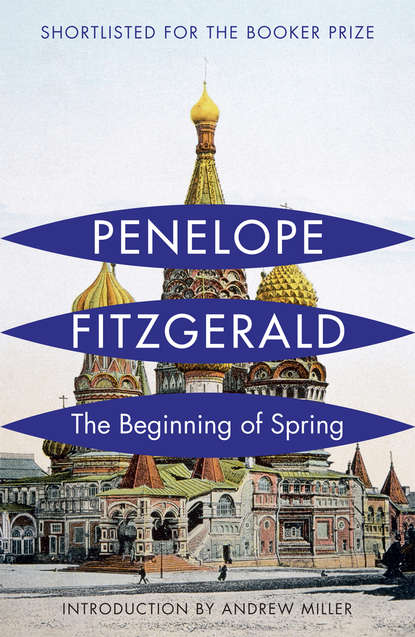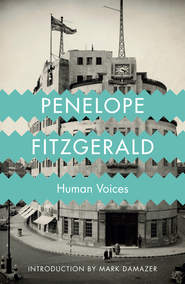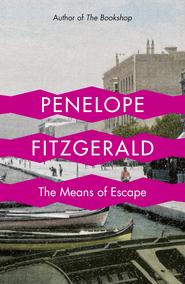По всем вопросам обращайтесь на: info@litportal.ru
(©) 2003-2024.
✖
The Beginning of Spring
Настройки чтения
Размер шрифта
Высота строк
Поля
‘I don’t just mean the people here,’ she went on earnestly, ‘I mean all the people we’ve invited, those cousins of yours from Salford, and those aunts.’
‘They’re not so bad.’
‘People always say that about their aunts,’ said Nellie. ‘The wedding will bring out the worst in them, you’ll see. I’m not a dreamer. I have to look at things quite squarely, as they really are. That’s one of the things you like about me. I know it is.’
She had no doubts. Even her curling hair seemed to spring up from her forehead with determination. Frank kissed her, but not in such a way as to interrupt her. She asked him whether he’d given any thought as to what the wedding would be like.
‘It’s best to take things as they come,’ he said.
‘Well, I’ll tell you what it’s going to be like. I’m not talking about the church service. I mean afterwards, when we’re back here. We’re going to have ham and tongue, cucumber sandwiches, vanilla shape and honeycomb mould, nuts, port wine and Madeira. The port wine will be a bit much for Charlie and after a bit it’ll be too much for the lot of them, and they’ll all take some, because teetotallers always say that port doesn’t count, and the older ones, they’ll draw together a bit and lower their voices and say to each other, she doesn’t know what she’s in for. She’s twenty-six and he’s the first boy she’s ever been out with seriously. He’s a decent sort, you can see that, so they won’t have been up to anything yet, and she hasn’t any idea what she’s in for.’
‘I was hoping they’d have confidence in me,’ said Frank, ‘they’ve no reason not to.’
‘Oh, they won’t have anything against you personally. But they have to make out that it’s a tremendous thing – the only thing that ever happens to a woman, really, bar having children, and change of life, and dying. That’s how they see things in Norbury. There’s a certain expression they have, I’ve noticed it so often. They’ll say that if they’d known what it was going to be like nothing would have dragged them to the altar.’
Frank felt rather at a loss. He kissed her again and said, ‘Don’t be discouraged.’ She remained rigid.
‘What does it matter what all these people think, Nellie? If you’re really right, we ought to pity them.’
Nellie shook her head like a terrier.
‘I’m not going to be got the better of. They may not know it, they won’t know it, but I’m not going to.’
It was a brilliant day, a moment when a Norbury’s dampness justified itself in bright green grass, clipped green hedges, alert sparrows, stained glass washed to the brilliance of jewels, barometers waiting to be tapped. They were alone in the house. Nellie said: ‘Would you like to see my things? I mean the things I’m going to wear for the wedding. Not the dress, they’ll bring that later. It’s not lucky to have it in the house for too long.’
‘Yes, of course I would, if you feel like showing them to me.’
‘Do you believe in luck?’
‘You’ve asked me that before, Nellie. I told you, I used to believe it was for other people.’
They went up past the half-landing and into a bedroom almost entirely filled by the wardrobe and various pieces of furniture which looked as though they’d come to rest there from other rooms in the house. The morning sunlight, streaming through the one window caught the wardrobe’s bright bevelled glass. On the white bed some white draper’s goods were laid out, turning out to be a petticoat, a chemise, drawers and corsets. These last Nellie picked up and threw on the ground.
‘I’m not wearing these. I’ve given up wearing them. From now on I’m going to go unbraced, like Arts and Crafts women.’
‘Well, it’s always beaten me how women can stand them,’ said Frank.
‘Don’t think I’m going to pay for them, though. They can go back to Gage’s.’
‘Why not?’
‘They make ridges on your flesh, you know, even with a patent fastener. You’ll find I don’t have any ridges.’
She began to undress. ‘I’m twenty-six.’
‘You keep telling me that, Nellie.’
‘All the same, even at my age, when I’ve got these things off I’m not sure what to do next.’
It was a moment’s loss of confidence, which Frank knew he mustn’t allow. Under his hands her solid partly naked body was damp with effort. She was recklessly dragging off something or other whose fastenings seemed to defy her. Her voice was muffled. ‘Go on Frank. I’m not going to let them stand about knowing more than I do. I won’t be got the better of.’
4 (#ulink_84230919-d99e-538c-99e5-8a0408f48356)
The young Reids did not go straight to Moscow. One of the things that Frank’s father had told him at the Norbury wedding was that he’d better have a look at what they were doing in Germany, and so for three years he worked with Hirschfeld’s printing machinery in Frankfurt. Dolly was born there, and so was Ben. Then came the miscarriage. It was summertime, the hot, landlocked German summer. They were living in the suburbs, and in those days there were still barrel organs playing in the streets. From the pavement below their room an organ repeated the same tune Schön wie ein engel. Again and again it tore into the sentimental music with steel teeth. Nellie lay flat on her back, losing blood, hoping to save the baby. She told Frank to throw some money out of the window to the organ-man to bring them luck, but they had no luck that day.
In the winter of 1905 Bert Reid died in Moscow – not in the uprisings, although that was a year of strikes and violence, almost a revolution against the Russian war with Japan. The German and English papers showed pictures of the streets barricaded with wrecked trams. The electricity had been cut off and the snowy, tomb-like barricades were lit by kerosene flares. Five batteries of artillery arrived to shell the factories in the Presnya and the Rogoznkaya where the men held out. Then they pumped in water through the gaps with equipment borrowed from Moscow’s fire services. The water turned to ice on impact. When the strikers came out to try to escape back to their villages, the soldiers overturned their sledges and scattered their possessions in the snow. The assembly plant was taken over and the Reids moved to the nearest hotel, Sovastyanov’s. There, after a week during which he had no occupation, since the army wouldn’t let him on to his own site, Bert complained of heart pains. These pains were the symptoms of bacterial endocarditis. Pieces of inflamed tissue were making their way from the walls of the heart into the bloodstream. The Greek doctor who was called in – their usual doctor, a German, had left for Berlin when the light and water in his surgery was cut off – had nothing to prescribe except rest and valerian drops and warm water. He told Mrs Reid that in his opinion her husband’s heart had given way from grief at the sad happenings in St Petersburg and Moscow. But Dr Weiss, if he had been there, though he might have diagnosed more accurately, would not have been able to save Bert.
Mrs Reid, perhaps, really did die of grief. She collapsed in the study of the Anglican chaplaincy, where she had gone to see about the funeral arrangements. Summoned by cables, Frank arrived at the Alexander station with Nellie and the two children, who wanted to start playing immediately in the deep snow. He remembered – though she had left no will and indeed had nothing of her own – that she had expressed a wish to be buried in Salford. All that had to be put in hand, and he had to find somewhere to live. The wooden family house on the site had been half burned down and then swamped with water. Without much difficulty he took a lease on 22 Lipka Street. Some of the men got together to help him rescue what furniture they could. The piano, oddly enough, his mother’s Bechstein, came out undamaged from the ordeal by fire and ice. Everything else he got from Muir and Merrilees, which had remained open during what the manager called the disturbances, its dark blue flag with the golden M&M flying frozen above the shop’s façade.
It wasn’t a time for risk-taking, because Frank was determined that Nellie shouldn’t have to worry about money. A look through the books showed that the import and assembly business would have to be wound down, or better still, sold as it stood. That was a pity, because Reid’s main suppliers, Hoe’s of the Borough Road in south east London, were as reliable as the day and the night. The trouble seemed to have been two things which Frank hadn’t known anything about. In the first place, although his father had got his letters, giving him some idea of the German competition, he hadn’t acted on the advice, or had acted on it eccentrically. He’d set his heart on expansion, and, worst still, become fascinated by the idea of the Mammoth Press which Hoe’s were putting into production for Lloyds Weekly News at a cost of eighteen thousand pounds. Another Mammoth, not for any definite customer, but most unwisely ordered on spec, had been delivered to the site, and was lying prone under tarpaulin, colossal, unassembled, unpaid for, looking, as it lay under many inches of snow against the pale green sky, like an ominous relic of the past rather than the machinery of the future. By Bert Reid’s bedside when he died, among the letters he was drafting to the Ministry of Interior to plead for those of his people, his ‘hands’, who had been arrested, was an illustrated booklet from Hoe’s describing, in heroic terms, the Mammoth. Now, with the sheds, the plant and the site itself, it must find, even in its dismembered state, a purchaser, probably one of the merchants of the second grade, with whose sons Frank had gone to school. Once it was gone, he could strike a balance, and concentrate on Reidka’s.
Frank’s affection for Moscow came over him at odd and inappropriate times and in undistinguished places. Dear, slovenly, mother Moscow, bemused with the bells of its four times forty churches, indifferently sheltering factories, whore-houses and golden domes, impeded by Greeks and Persians and bewildered villagers and seminarists straying on to the tramlines, centred on its holy citadel, but reaching outwards with a frowsty leap across the boulevards to the circle of workers’ dormitories and railheads, where the monasteries still prayed, and at last to a circle of pig-sties, cabbage-patches, earth roads, earth closets, where Moscow sank back, seemingly with relief, into a village.
Nellie, too, very much preferred Moscow to Germany. She enjoyed putting 22 Lipka Street in order. The village habits of the great manufacturing city didn’t disconcert her at all. She was at home there, it seemed to Frank. This threw a new light on her hostility to Norbury, which had been neither town nor country.
5 (#ulink_56df6910-9135-5e5c-8972-d26dcec4f398)
They had had to move to Moscow in the dead of winter, and as they came out of the Alexander station the whole Tverskaya seemed to be drifting with smoke and steam, everyone, men and women alike, rolling and smoking their own cigarettes, their breath condensing heavily in the frost, like cattle in a pen. Selwyn had met them, anxious for their welfare and unmistakeably grieving, to be forgiven everything for his sincerity. What had to be forgiven was his inability to help in any way with the children, the porters and the luggage, not so much through incompetence as inability to grasp the kind of thing that might be needed. Frank had met him before on short trips to see his parents in Moscow, Nellie not at all. ‘How do you do, Mr Crane. This is Dolly, our eldest. This is Ben.’ Selwyn bent down towards them, wrapped as they were like bundles against the cold.
‘Both of them bereaved!’
‘They’ve never met their grandparents, so they’re hardly likely to miss them,’ said Nellie. ‘Perhaps you’d help Frank to check the items.’
At that first meeting, she told Frank, she’d thought that Mr Crane was only elevenpence in the shilling. But Selwyn, though he would probably have been at a loss in Frankfurt, managed well enough in Moscow. He didn’t oppose his will to the powerful slow-moving muddle around him. What he did not like, or could not change, he guilelessly avoided. The current of history carried him gently with it.
Before his first visit to Reidka’s Frank asked Selwyn to sit down with him and give him an accurate idea of what he’d find when he got there. Selwyn began, as his nature was, with reassurance. ‘Of course, your chief compositor will be there, Yacob Tvyordov will be there, as always.’
‘What happened to him last year? Wasn’t he out on strike with the others?’
‘He is the Union Treasurer, and he was out for six days. I believe those are the only six days he’s ever missed.’
‘Where did my father find him?’
‘He came from the Flying Swan Press when it closed down. They only did hand-printing, of course.’
‘And Tvyordov?’
‘Only hand-printing.’
‘How old is he?’
‘I don’t know. We’ve got his particulars, I suppose. Some people are ageless, Frank.’
‘What about the overseer?’
Selwyn never liked to speak ill of another human being. He hesitated.
‘Korobyev. Well, it’s his business, of course, to collect the fines for mistakes, spoiled work, laziness, drunkenness, absence and so on. An unenviable task, Frank! But there it is, the Printer’s Union agreed to the scale of fines, and we keep to the agreed scales. But since your father died, I fear Korobyev may have instituted a collection of his own whenever he feels the need for ready money.’











